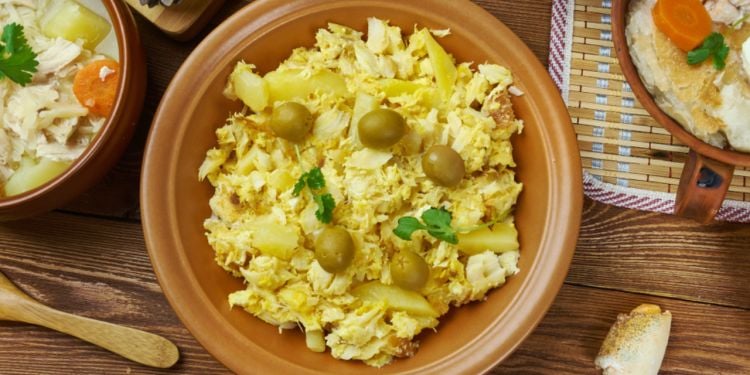The food scene in Lisbon

Any expat about to settle in Lisbon will have heard about the staple Portuguese delicacies: pastel de nata (custard tarts), of course, and bacalhau (salted cod), ubiquitous in restaurants and bakeries all over the city, all year round. Despite a lot of influences from colonies across the Atlantic and in the Indian Oceans, Portuguese gastronomy has managed to keep true to its simple but delicious flavors.
Popular dishes in Lisbon
Though Lisbon is the capital and the meeting point for different culinary traditions in the country, there are certain foods or ingredients that are unanimously appreciated all over the tiny Portuguese territory. As mentioned above, pastéis de nata and salted cod are among such staples, though there are literally dozens of ways you can prepare the latter! While in Lisbon, feel free to try different versions of the bacalao, such as Bacalhau à Brás (cooked with eggs, olives and fries), Bacalhau à Gomes Sá (baked with boiled eggs, olives, potatoes, peppers and onions) or Pastéis de Bacalhau (a fried dumpling with mash potato served as a snack).
Although they're getting increasingly hard to find, Tascas – humble local restaurants – usually have a daily menu that changes according to the availability of the produce. Traditionally, Portuguese people start the meal with soup (try caldo verde), and have a meat or fish-based dish as a main (anything from stews to grilled fish/meat, seafood or dried/cured cuts) served either with French fries, rice or vegetables. For dessert, there are loads of egg-based sweets for you to try, though restaurants usually stick to the safe options you would find pretty much anywhere else in the world, such as chocolate mousse, biscuit cake or pudding. If you really want to try traditional local sweets, you need to visit a bakery and sample Bola de Berlim (fried dough filled with egg custard), Queijadas de Sintra (cheese-based muffins) and Travesseiros (flaky dough with a filling of custard and almonds).
To finish off: an espresso, please!
The food scene in the Lisbon
Despite staying faithful to its tradition, Portuguese cuisine has had a vital uplifting in the past years. Chefs like Nuno Mendes and Alex Ferreira have put Portuguese gastronomy on the map and returned to their homeland after stints in the food capitals of Europe, like London and Paris, with refreshing ideas to bring new approaches to traditional and much-loved dishes.
While fine dining is on the rise, some of the best Portuguese food is found at simple neighborhood tascas, trying their house wine and enjoying whatever is fresh during the day. It is also a lovely way for expats to interact with chefs and cooks as well, as they are usually readily available for a curious chat.
Though there are specialized restaurants around town (like The Green Affair in Saldanha and Chiado) and most of the more modern restaurants will always provide a few vegan/vegetarian options on the menu, it's important to note that most of Lisbon's oldest “tascas” will probably have nothing more to offer but a simple cheese omelet.
Furthermore, Lisbon is also a hub for international cuisines, even though Portuguese people aren't usually particularly adventurous when it comes to food nor fond of spicy or greasy dishes. Still, lots of Brazilian, Nepalese, Indian, Japanese, Thai, Italian and Chinese restaurants can be found around town.
Best restaurants in Lisbon
José Avillez's Belcanto gives a fine dining touch to traditional Portuguese cuisine. Having been awarded 2 Michelin Stars, this sophisticated place is suitable for expats who wish to take their Portuguese food experience one step further.
Seafood lovers will find endless happiness at Hugo Gouveia's Taberna do Mar, in the heart of the charming Graça neighborhood, or Marisqueira do Lis, a famous destination at Avenida Almirante Reis.
However, if you really want to mingle with the locals, discover the most authentic Portuguese food, and, on top of that, get more bang for your buck, then you should check some of the most popular traditional “tascas”, such as Beira Gare (for the Bifana – a pork sandwich), o Cartaxinho (for Cozido à Portuguesa – a stew of boiled and cured meats), A Provinciana (for the Sardines or the Cabidela – a dish of rice and chicken cooked in the latter's blood) or Zé da Mouraria (for the Cuttlefish or the Baked Cod).









